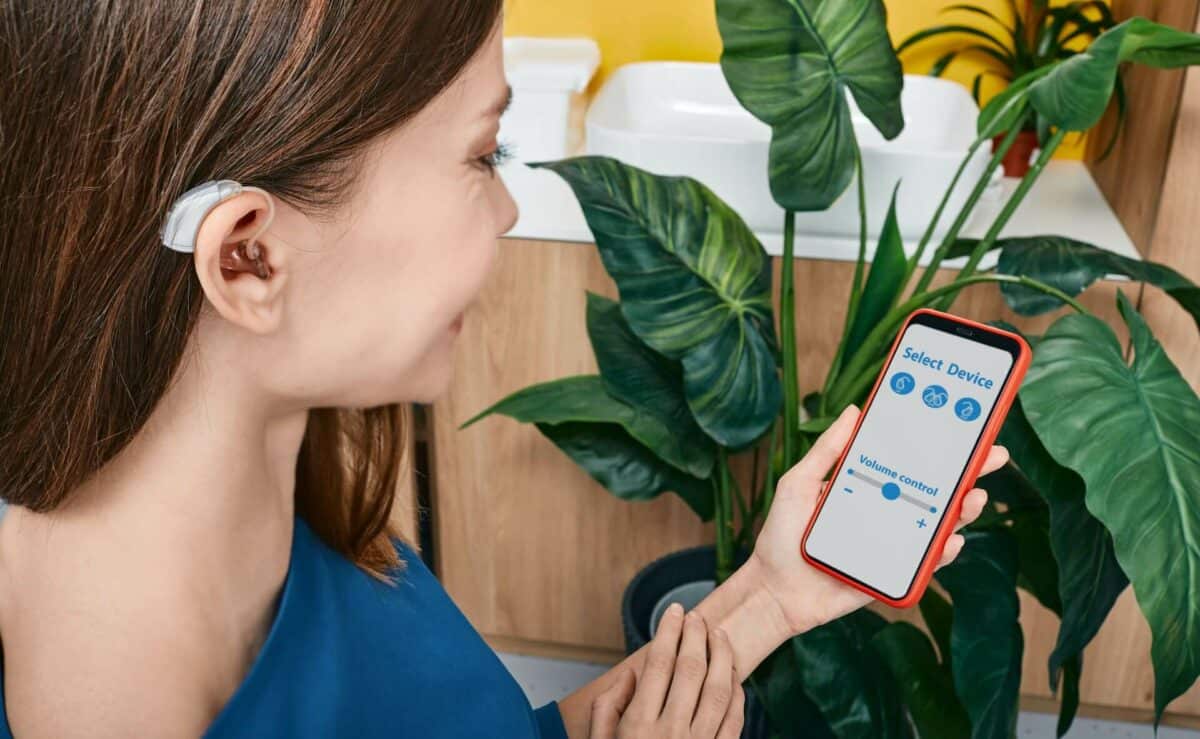0% financing available. Up to 3-year loss and damage guarantee.

Empowering Individuals with Hearing Loss: How Virtual Assistants Revolutionize Communication
- Navigating the Conversation: The Significance of Thoughtful Disclosure in Hearing Loss - December 10, 2023
- The Sound of Dreams: Understanding How Hearing Loss Impacts Dreaming - November 7, 2023
- Traveling Effectively with Hearing Aids - October 16, 2023
Living with hearing loss presents unique challenges, particularly in communication and accessing information. However, technological advancements have opened up new avenues of support. Virtual assistants, such as Siri, Alexa, and Google Assistant, have become invaluable tools, empowering individuals with hearing loss to overcome communication barriers and enhance their quality of life. In this article, we will explore the transformative role of virtual assistants in assisting those with hearing loss, highlighting their benefits and functionalities.
Voice Recognition Technology: A Gateway to Accessibility
Virtual assistants harness cutting-edge voice recognition technology, making them ideal companions for individuals with hearing loss. By understanding and responding to spoken commands, virtual assistants eliminate the reliance on auditory cues. This hands-free interface allows users to access a plethora of functionalities, from setting reminders and checking the weather to sending messages and making phone calls. With virtual assistants, individuals with hearing loss can effortlessly interact with their devices through speech, promoting independence and ease of communication.
Real-Time Captioning and Transcription: Breaking Down Barriers
Understanding spoken conversations and audio content can be a significant challenge for individuals with hearing loss. Virtual assistants step in as powerful allies by providing real-time captioning and transcription services. Through integration with compatible devices or applications, virtual assistants can transcribe spoken words into text, enabling users to read and comprehend conversations, podcasts, videos, and more. This feature enhances accessibility, fostering inclusive participation in various social and informational settings.
Smart Home Integration: Creating Accessible Living Spaces
Virtual assistants seamlessly integrate with smart home devices, transforming houses into more accessible and convenient living spaces for individuals with hearing loss. Through simple voice commands, users can control lights, thermostats, locks, and other appliances, eliminating the need for manual adjustments. This hands-free control enhances independence and comfort within the home environment, allowing individuals with hearing loss to navigate their surroundings with ease.
Telecommunications Accessibility: Bridging Communication Gaps
Virtual assistants play a pivotal role in enhancing telecommunications accessibility for individuals with hearing loss. These assistants enable users to make and receive calls, send messages, and initiate video chats, acting as intermediaries between individuals with hearing loss and the outside world. Moreover, by connecting virtual assistants to captioned telephones or video relay services, seamless and inclusive communication experiences are ensured, empowering individuals to connect and engage with others effortlessly.
Accessibility Features and Customizations: Tailored to Individual Needs
Virtual assistants offer a range of accessibility features and customizations specifically designed for individuals with hearing loss. Users can personalize the voice volume, speed, and even select their preferred voice. Moreover, virtual assistants can synchronize with vibrating alerts or visual cues, such as flashing lights, ensuring individuals receive important notifications and alarms without relying solely on auditory cues. These features enhance independence, communication, and engagement for those with hearing loss.
Education and Language Support: Expanding Horizons
Virtual assistants serve as invaluable educational and language support tools for individuals with hearing loss. Whether it involves learning a new language, improving pronunciation, or accessing educational content, virtual assistants provide on-demand assistance. With features like translations, definitions, and access to vast educational resources, these assistants facilitate continuous learning and bridge language barriers that may arise due to hearing loss.
Wrap Up
Virtual assistants have revolutionized the lives of individuals with hearing loss, empowering them to overcome communication barriers and embrace a more inclusive lifestyle. Through voice recognition technology, real-time captioning, smart home integration, telecommunications accessibility, and a range of accessibility features, virtual assistants have become indispensable tools for enhancing communication, accessibility, and overall well-being.
As technology continues to evolve, virtual assistants will play an increasingly significant role in supporting individuals with hearing loss, ensuring equal access to information, communication, and independence. By embracing these tools, individuals with hearing loss can navigate their daily lives with greater ease and confidence, enjoying enhanced communication and accessibility in an interconnected world.
Remember, technology and support are pivotal in overcoming the challenges associated with hearing loss. With virtual assistants, individuals can connect, communicate, and thrive, embracing a world of possibilities.
We hope you found this information both insightful and helpful. If you have any questions about your hearing, hearing loss, or would like to set up your next hearing check up, please contact us. Our friendly staff of hearing health care professionals are ready to assist you with all your hearing needs.
